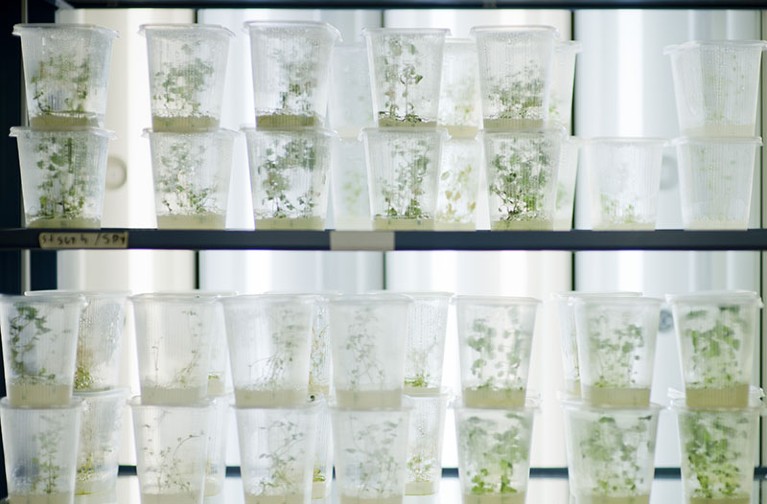Hello and thanks for reading. Did you know you can also get this briefing straight to your inbox? Sign up here.

The lab was renowned for their work in RNA interference.Credit: Michael Gottschalk/Photothek/Getty
French plant biologist cleared of misconduct
A new inquiry by France’s national research council has absolved a lab leader it had found guilty of misconduct in 2015, and holds another researcher responsible. The ruling should add some clarity and closure to the long-running saga — although the cleared researcher, Olivier Voinnet, is now raising fresh questions over how the French research council handled its initial 2015 investigation.
Nature | 6 min read
Scientists raise the alarm over UK visa denials
Scientists have expressed alarm over the fact that at least ten foreign researchers who had planned to attend the Global Symposium on Health Systems Research in Liverpool, UK, were denied visas. Leaders from the World Health Organization and the London School of Hygiene and Tropical Medicine have called for the organizers of international events to avoid the United States and the United Kingdom because of visa troubles. “People belonging to low income groups from lower and middle countries face double discrimination on the basis of income status and ethnicity,” wrote nutrition researcher Sabu Kochupurackal Ulahannan, who was denied after spending half a month’s salary to apply.
The Guardian | 7 min read
Court orders the Netherlands to cut carbon
A Dutch appeals court has upheld a ruling ordering the government to accelerate carbon-emissions cuts. “The government has done too little to prevent the dangers of climate change and is doing too little to catch up”, the court said. The case was filed by the environmental group Urgenda Foundation on behalf of nearly 900 Dutch citizens.
Reuters | 4 min read
FEATURES & OPINION
Share your science on a cruise
From explaining climate change amid dramatic landscapes to joining a cruise as a research adviser, there are plenty of globe-trotting opportunities for science outreach. Whether you take on a full-time travel career or dabble in day trips, Nature outlines the risks and rewards.
Nature | 9 min read
Explore space using swarms of tiny satellites
The cost of launching a satellite is comparable to the value of its weight in gold, but big, bulky and outdated equipment isn’t giving humanity much bang for those bucks. Seven scientists argue that satellites should be cheap, small, nimble, self-repairing and able to operate in swarms.
Nature | 10 min read
Nobel committees must do more to achieve equality
The bodies that govern the Nobel prizes have recognized that there are more people from under-represented groups who deserve the prize than receive it. But right now, we know nothing about where in the process the problem really lies — in nominations or selections. It’s time for transparency to come to the Nobels, argues a Nature editorial.
Nature | 4 min read
Read more: Evidence squarely shows how bias hinders female scientists’ careers
Sputnik and me
As a young space enthusiast growing up in the 1970s Soviet Union, journalist Anatoly Zak was surrounded by images of Sputnik “as common as portraits of Vladimir Lenin”. But the spacecraft’s history was hidden behind “an iron curtain of secrecy and paranoia”. Zak describes how catching a glimpse of Sputnik’s secret birthplace from a train led to his return as an adult, under very different circumstances.
National Geographic | 9 min read
